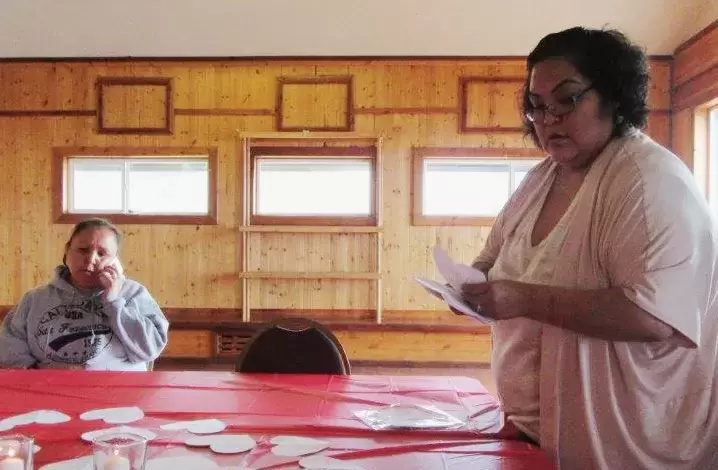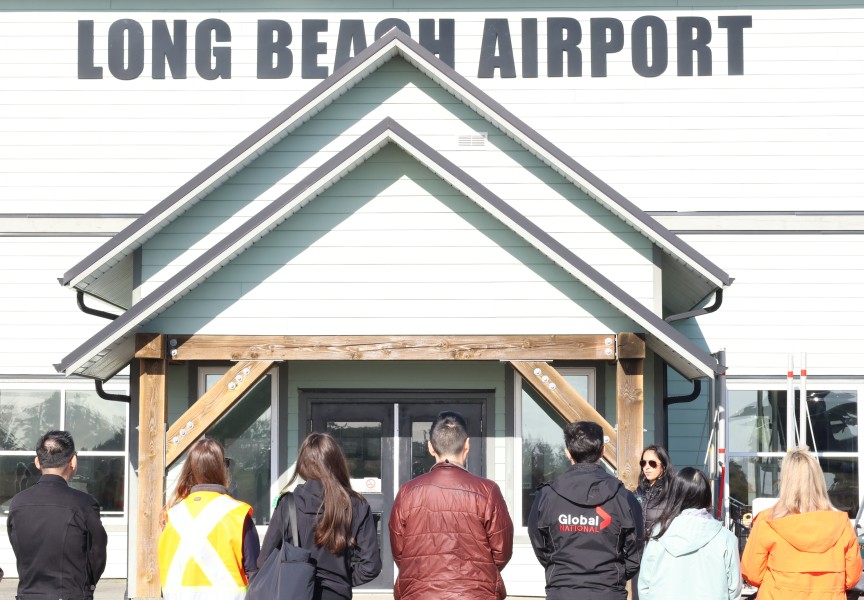“Some days I feel so helpless and frustrated to watch my family member go through pain, knowing there is not a single thing I can do to help,” said a member of the Tla-o-qui-aht First Nation about the suffering.
Tla-o-qui-aht has had a lot of losses recently, and some individuals and families are dealing with terminal illnesses at this time as well. So Naomi Seitcher, the Nation’s Human Services manager, traveled by boat to Opitsaht, a reserve across the water from Tofino, to set up the hall for a departmental staff debriefing session.
Seitcher invited a team from the Nuu-chah-nulth Tribal Council’s Quu?usa staff. Maureen Knighton, Ruby Ambrose, Quu?usa support workers, and clinical counsellor Jasmine Toor provided support, direction, cultural teachings and brushings.
Staff members had the opportunity to share their stories, and how the losses they have suffered affected them.
When there is a loss, it affects many people and the community, and especially occurs when there is a close working relationship or friendship with those who are grieving.
People can carry sadness, grief, sorrow, hurt and anger when there is a death in the community. The frontline workers work hard at holding up the communities, and when there are multiple deaths in any given month or year the staff feel the impacts.
Some staff members are dealing with losses both historic, and current; the grief of losing a child in most cases. When a person keeps all the emotions in, they can become ill, which can lead to burn out or stress leave.
Debriefing allows the opportunity to share and go through healing and to know that it is the time to support one another and to realize no one is alone. It is important to debrief so that staff can be fully present and be better able to do their jobs.
The group discussed the many ways to cope with loss. Many in the group practised self-care activities, like crocheting, walking, listening to music, dancing, biking, spending time with family members or friends, drumming, attending cultural activities, oosimch (ritual bathing for prayer), jogging and exercising to cope.
In the center of the table were heart-shaped messages to remind the participants of important Nuu-chah-nulth teachings passed down from generation to generation and which can be applied to life.
To complete the session, Knighton and Ambrose, provided a cultural cleansing ceremony. Knighton told the group that Trevor Little had given the Quu?usaProgram staff permission to use his song. Singing the song in the background, while doing the cleansing, was soothing and comforting for the participants.
Each human services staff member was presented with a blanket by the managers for the work that they do in the community. Wrapping a person in a blanket is symbolic of providing warmth, protection and comfort for those who are grieving or struggling with personal issues.
Dora Frank, caterer, and her assistant, Darlene Charlie, provided a delicious lunch for the staff and visitors.
The work and dedication of the staff was acknowledged by the managers, and they felt that the staff deserved the afternoon off and were encouraged to do self-care, to go be with family or have time alone.







